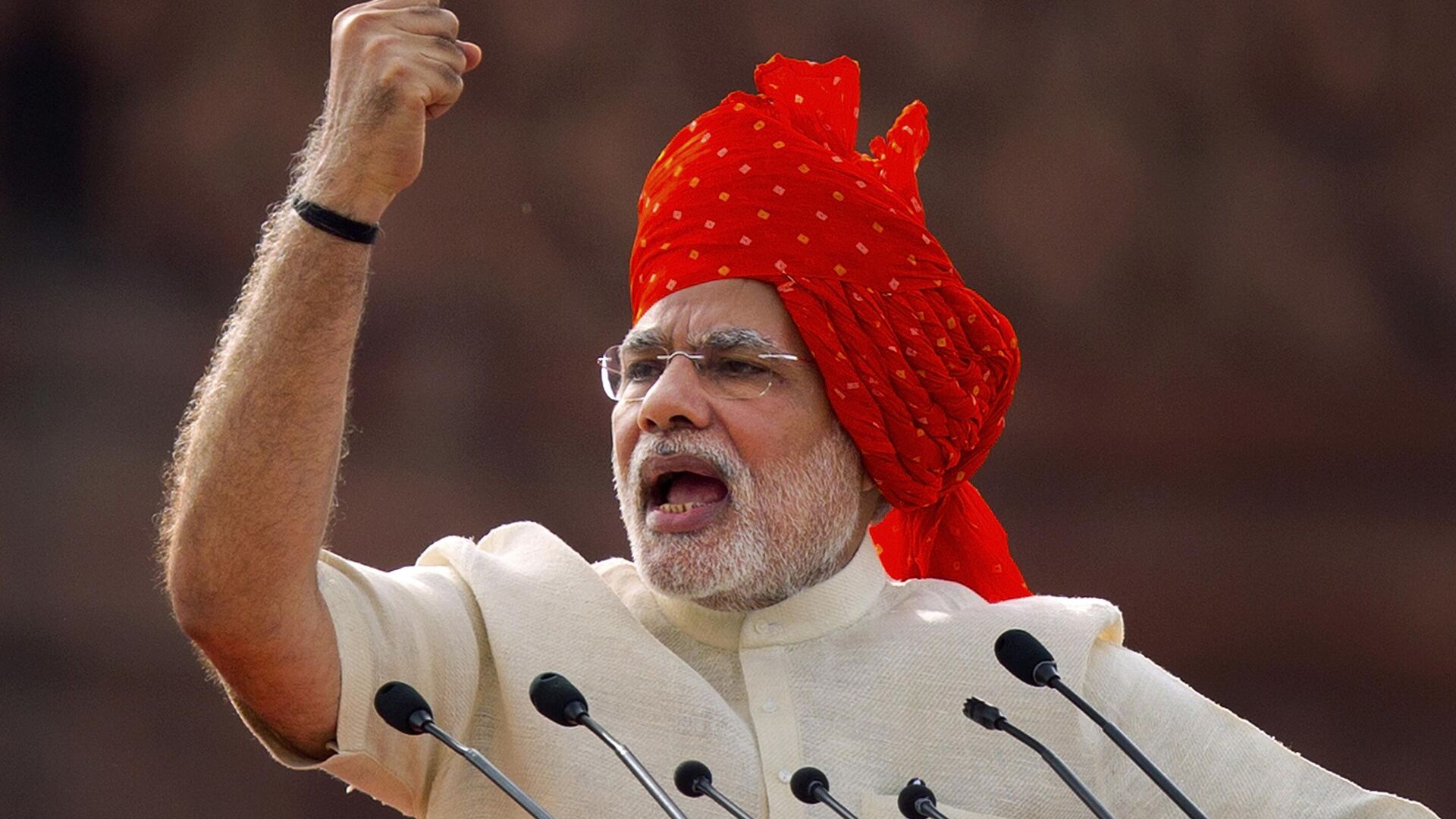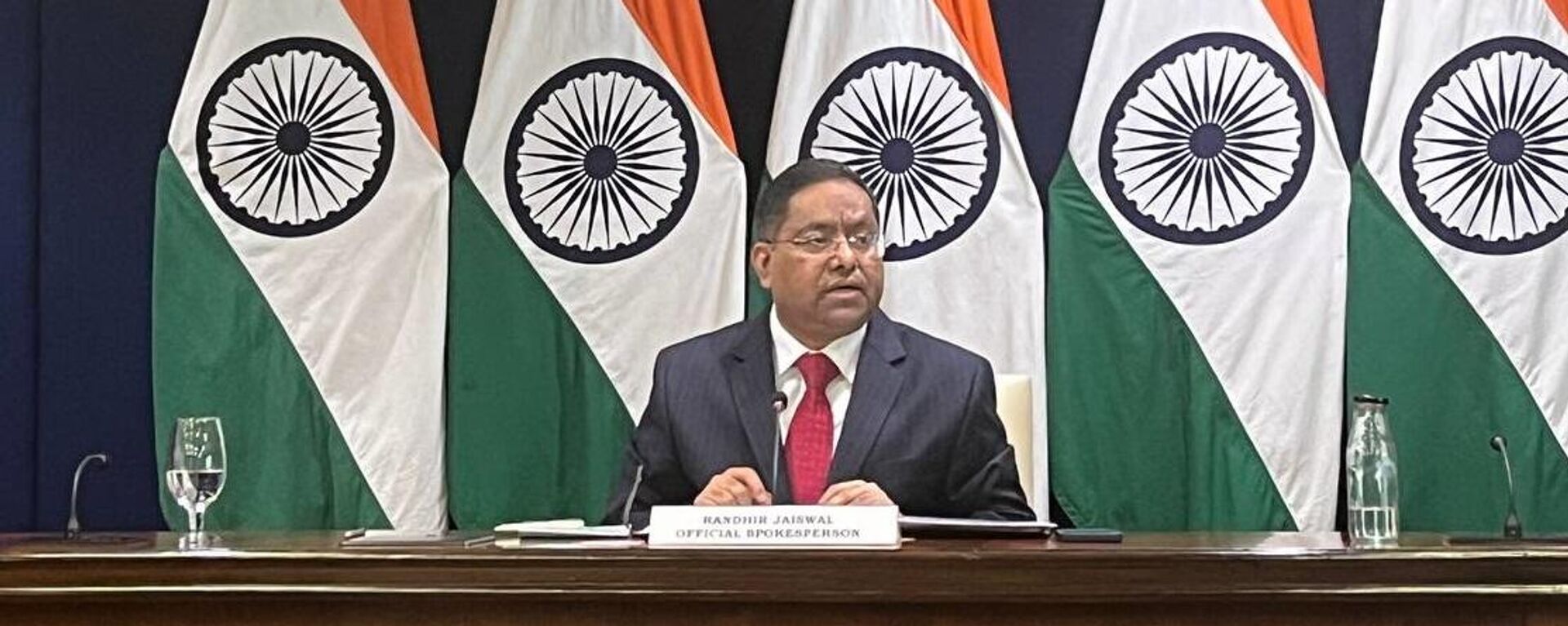Russian Oil Imports: India Finally Draws its Red Lines with the US - Experts

© AP Photo / Saurabh Das
Subscribe
Calling out the US and EU for their double-standards amid threats by NATO allies on the issue of Russian oil imports, India has asserted that it will take all necessary measures to safeguard its national interests and economic security.
The Indian statement rebuking the US and the European Union (EU) for repeatedly threatening New Delhi on the issue of Russian oil imports signifies a departure from India's previous negotiating strategy with the current dispensation in Washington, foreign policy experts have told Sputnik India.
"Initially, Indian policymakers took the over-eager posture of meeting the new US President (Trump) more than half way which led to the impression in the White House that India can be squeezed for more gains as well as be pressured into making unrelated geopolitical concessions on India’s strategic partnership with Russia," said Zorawar Daulet Singh, an author and a strategic affairs expert.
Prime Minister Narendra Modi was one of the first global leaders to pay a visit to the White House, less than a month after Trump assumed his second-term presidency. At the time, both the countries announced opening of negotiations for a bilateral trade agreement (BTA) aimed at addressing US grievances on a trade deficit and re-invigorate trade ties. Even as the two sides are still involved in hectic parleys to finalise the first tranche of a trade deal, Trump has repeatedly called out India for levying massive tariffs and threatened to impose 25% tariff as well as a "penalty" for importing Russian oil from 7 August.
Washington tariffs on Indian imports entering the United States are expected to "rise substantially", amid criticism over India’s continued purchases of Russian crude oil and the resale of refined products in global markets. At the same time, repeated US claims of brokering a ceasefire between India and Pakistan—despite consistent rebuttals by Indian leadership, including Prime Minister Modi—have contributed to growing diplomatic tensions and a cooling of bilateral relations.
Singh underscored that India seems to finally coming to term with the fact that the negotiating tactic has completely failed.
"Delhi seems to be drawing its red lines more publicly now," Singh said, while referring to the Indian statement released on Monday evening.
Further, the Indian author said that the global economy was undergoing major shifts, reducing reliance on western capital and technology.
"Today, the Global South including the BRICS plus network of economies are a massive source for consumption, investment capital and technology. The structural trends are clear — all major economies are diversifying their trade and investment basket away from the US, whose relative shares are declining, particularly for non western economies," Singh explained.
He stated that India will also look to accelerate its "diversification strategy" to de-risk exposure from the US, currently the largest trading partner for New Delhi and the biggest foreign direct investor (FDI), according to Reserve Bank of India (RBI) data.
For retired Lieutenant Colonel JS Sodhi, an author and strategic affairs analyst, the Indian statement on Monday marks a "turning point" in New Delhi's strategy towards the US.
"The MEA castigating the US and EU for their double standards is a clear signal that India will now very unambiguously walk the path to suit only its national interests. The statement partly allays a global perception that's been gaining ground in the last few years, which is that India had been subtly tilting towards the US," Sodhi said.
The Army veteran asserted that India has made it unequivocally clear that it won't give up on its ties with Russia due to American pressure, nor will it stop buying Russian oil, which if done could have adverse implications for the Indian consumer.
Dr Abhinav Pandya, Director and CEO of foreign policy think tank Usanas Foundation, echoed these views.
"India's rejoinder to the American threats on Russian oil imports seems to mark a shift in its approach while dealing with the US," Pandya stated, while noting that the Modi government chose to take a rather "diplomatic route" in dealing with the US and EU allies in spite of repeated provocations as well as the designating of a Gujarat-based refinery owned by Nayara Energy by the EU last month.
Pandya said that in the last six months, Washington's words and actions on major issues of trade, India-Pakistan ceasefire and lately ties with Russia have all gone against India's economic and national interests.
"India has consistently sought to decouple its dealings with Russia from those concerning the US and vice-versa. It has been made clear to the Americans time and again that India's strategy to procure oil from Russia is in the interest of the Indian consumer," the thinktank chief said.
An important point to note here is that successive Indian administrations have made a conscious choice to warm up to the US and western interests post 1991 reforms. However, India's time-tested relations with Russia have continued to go steady despite this tilt. At the same time, the non-alignment policy has paved the way for a multi-aligned policy to ensure that we remain strategically autonomous, Pandya concluded.


